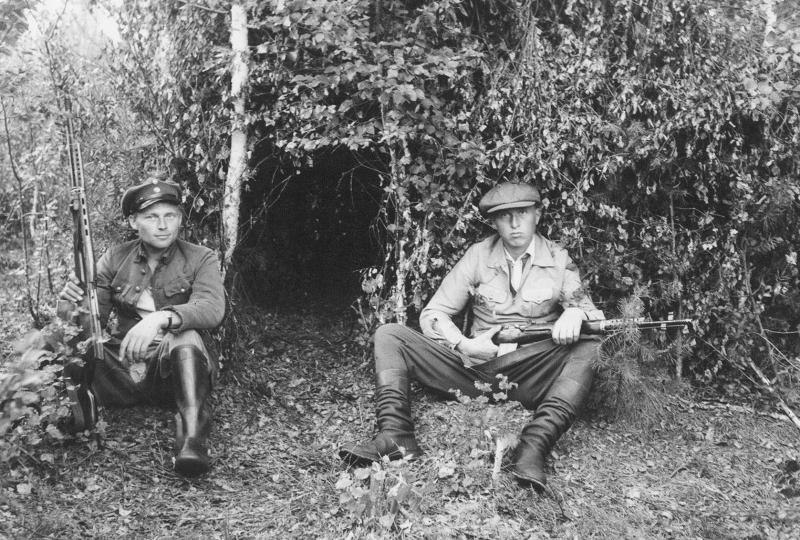No surprise at all, that FN was identified. Ferdinand Nurme, son of Jaan, was born in 1923 (mil.ee commentator indicates that he was born on October 15th of that year) in Viljandi province, Suislepa parish. His first arrest date gibes with the interviews, April 25, 1941, as does his sentencing under ∞ 58. The site does provide a death year – 2004 -, but no month/day. At the end of his life Nurme was blind, most certainly thanks to the events of 1949.
Nurme operated as a forest brother under the alias of Vello Salumets. He has been included in historical works by Enno Piir about Viljandi province, the Viljandi Heritage Society and the Viljandi branch of Memento, as well as in a register of names from Viljandi dealing with that time period. The anonymous mil.ee poster notes that none of these mentions are of great value. Yet another strike against the claim of being the Black Captain. As well, the Soviet security organs have named others as the Black Captain.
Erelt's interview is addressed at mil.ee as well. A man who was incarcerated along with Nurme was infuriated by the claims made in the lengthy Eesti Ekspress article, maddened not only by Nurme as a person but by his fabrications. Hence, strike two.
A final posting notes that the EE interview left a dubious impression for that reader, most notably meeting Khrushchev. That commentator was aware of an encounter that journalist Marko Püüa ( http://www.ppy.ee/kuukiir/a/2004/6/10/) had with Nurme. Püüa quoted Nurme as saying in 2003 (!) “I hope that by the grace of God I will see the true Estonian Republic”, a bizarre comment to make 12 years after the restoration of independence. Püüa noted that Nurme walked with the aid of a cane and wore Coke-bottle thick-lensed glasses.
Even in 2003 Nurme insisted on being called the Black Captain, and kept repeating how he had met Jaan Tõnisson en route to the GULAG. This posting on mil.ee concludes that in the final years of his life Nurme was not necessarily deceptive, spurious or uttering outright falsehoods. In Estonian he wrote “ehk ei olnudki nende viimaste sõnavõttude puhul tegu mingi valskusega – pigem olid eluraskused peas mõned kruvid logisema löönud”. (Perhaps these last statements were not falsehoods, rather the hardships of life had set a few screws loose in his head).
Thus it still remains to be determined who was the real Black Captain. For the legend of Must Kapten was known by many, not only in Soviet occupied Estonia but by those who had successfully fled the occupying Soviet Army. Perhaps the real Black Captain suffered an anonymous death, or, unlike Ferdinand Nurme, chose to keep his identity a secret to the very end. For it is unlikely that a legend such as the Must Kapten would have had, as Nurme did, his death sentence commuted. (Hirmus Ants was put to death almost immediately). More likely he would have been murdered after his arrest as was the case with far too many unlucky and unfortunate forest brother.
That 1990 interview was made with personal interest in mind, certainly not for publication in “Noorte Hääl”, today known as “Päevaleht”. (The name change took plave while I was there). Nor in Meie Elu, as Nurme did express a desire to not have it published while the Soviets were in power. His delusions in 2003 do indicate, that 13 years earlier he had already lost touch with reality. Yet it was a fascinating encounter.
The question thus remains today: The Black Captain – who was he?
Tõnu Naelapea, Toronto




